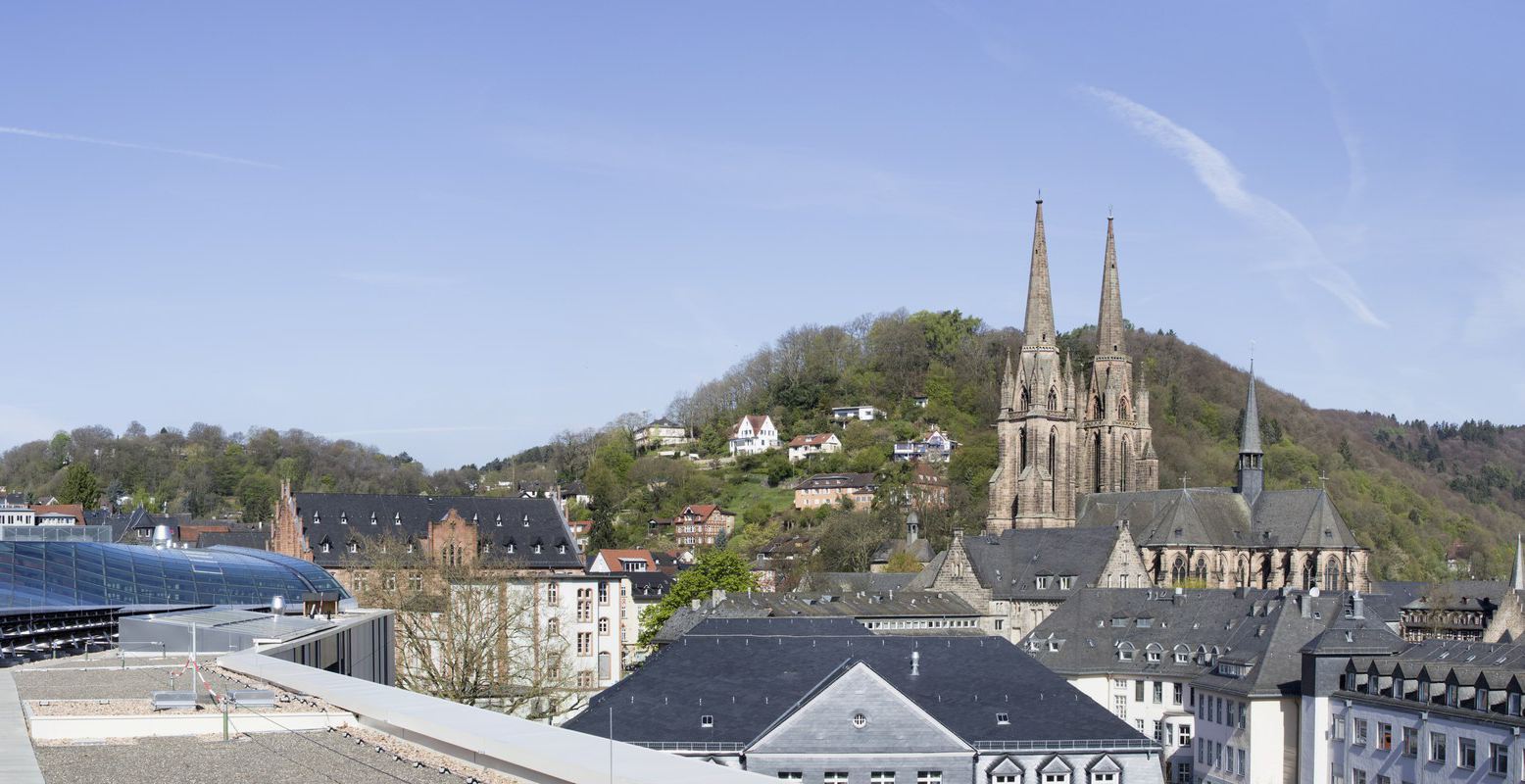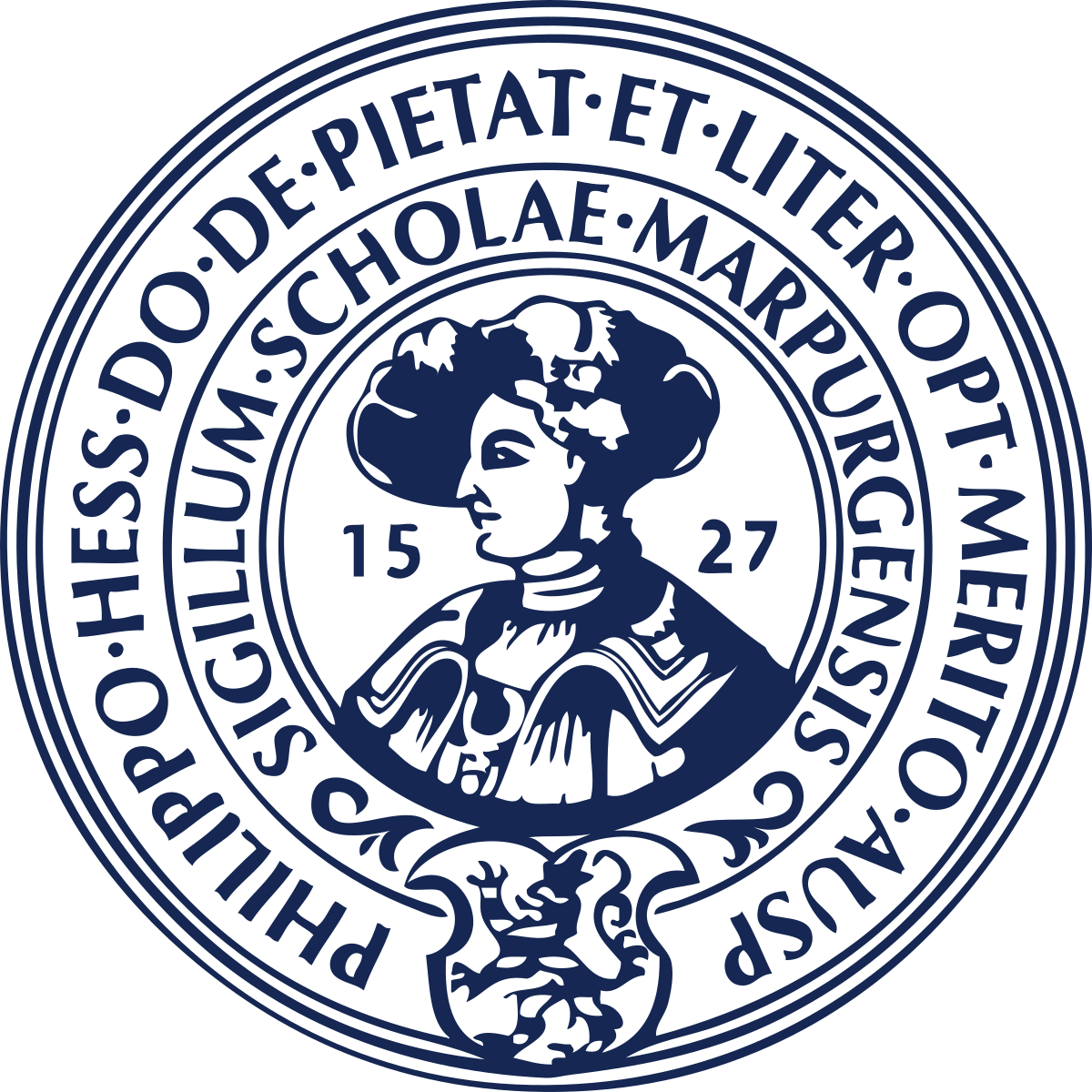
Dual Degree MSc IPE

Explore the Impact of Economics on Politics While Earning Dual Masters Degrees Abroad
Visit the University of Marburg program website.
Click below to learn more about…
Study Overview
What is International Political Economy?
The Master of Science in International Political Economy (MSc IPE) is an international and interdisciplinary two-year Master’s program designed to combine the analytical strength of economics with global insights from political science.
Plan of Study
The program consists of four semesters. The first three semesters contain coursework, while the final semester is dedicated to the writing of a Master’s thesis. Each semester carries a workload of 30 European Credit Hours (ECTS) or 9 hours in Dallas, respectively, meaning that upon completion students will have acquired 120 ECTS or 36 hours in Dallas, respectively.
Up to ten students are admitted simultaneously in Dallas and Marburg to study for one year where they were admitted and then move on to the respective other university.
Students spend one year in Germany and one year in the US giving them the opportunity to experience international differences in terms of politics, economics, social processes, and culture.
Language of Instruction
The IPE program is conducted entirely in English. All courses, seminars, and examinations will be delivered in English, and the Master’s thesis must also be written and submitted in English.
Meet MSc IPE Alumni


Program Structure
Students Starting at the University of Texas at Dallas:
Dallas
Semesters 1 and 2:
- Research Methods
- International Politics
- Political Science Electives
Marburg
Semesters 3 and 4:
- Research Methods
- International Economics
- Economics Electives
- Master’s Thesis
Students Starting at the University of Marburg:
Marburg
Semesters 1 and 2:
- Research Methods
- International Economics
- Economics Electives
Dallas
Semesters 3 and 4:
- Research Methods
- International Politics
- Political Science Electives
- Master’s Thesis
For more detailed course information, please visit the University Graduate Catalog.
Program Faculty
UT Dallas
Clint Peinhardt: Examines the intersection of international politics, economics, and law. His research investigates the causes and consequences of Bilateral Investment Treaties (BITs)
Jennifer Holmes: Analyzes political violence, terrorism, and political development. She is an expert on Latin America, especially Colombia and Peru.
Elías Cisneros: Combines remotely sensed data with market and political shocks to investigate human behavior and the transformation of landscapes.
Jonathan Pinckney: Research focuses on the intersections of nonviolent resistance, peace-building, and democratization.
Others: See our full Public Policy and Political Economy faculty list.
University of Marburg
Bernd Hayo: Investigates the interplay between political leaders’ socioeconomic background and their economic performance. Also an expert of central banks and financial crises.
Sascha Moells: Investigates the motivations of private sector actors in the context of political decisions. Expert in the effects of regulation on the motivation of auditors
Others: See University of Marburg website.
Community Partners
We cooperate with a variety of partners in the Dallas/Fort Worth area, such as:
- American Council on Germany — Dallas Eric M. Warburg Chapter
- German American Chambers of Commerce of the Southern U.S. Inc.
- Dallas Independent School District — Department of World Languages
- Dallas Goethe Center
- Honorary Consul of the Federal Republic of Germany
- Dallas Committee on Foreign Relations
- World Affairs Council of Dallas/Fort Worth
Living Abroad
The joint degree requires you to live abroad for at least one year. If you start your studies in the United States, you will be studying in Germany your second year. However, you do not need to be fluent in German to successfully complete the degree: All classes — even those in Germany — are offered in English. Conversely, if you start your studies in Germany, your second year of studies will be in Dallas.
Both cities have a lot to offer:
- Marburg is a beautiful town. Its historical city center is 800 years old. The University of Marburg itself was founded in 1527, providing a Harry-Potter-like experience. Above the city towers a beautiful castle, called the landgrave’s castle. The city is home to a variety of coffee shops, pubs, and bars, facilitating a vibrant student life. Marburg was not bombed during World War II and so the medieval city center is still characterized by traditional half-timber houses. There is plenty of nature to explore as well: The river Lahn flows through the valley and can be explored by boat and offers plenty of hiking opportunities.
- Similarly, the city of Dallas offers many attractions, but a very different experience. The city’s prominence arose from its historical importance as a center for the oil and cotton industries. Thanks to these roots, today Dallas is an economic powerhouse with one of the most dynamic regional economies in the United States. For example, it is home to the third-largest concentration of Fortune 500 companies in the nation. As a consequence, its importance as a cultural and sports metropolis has risen. For example, Dallas offers multiple world-class museums, a symphonic orchestra, and sports teams such as Dirk Nowitzki’s Dallas Mavericks or the Dallas Cowboys.
Housing
Direct accommodation on campus is rather unusual in Germany. In Marburg, the university is not a single centralized campus; Instead the various university buildings are located all over the city. For this reason, it is the student’s responsibility to find his/her own housing. There are three common options for housing:
- Studentenwohnheime (student dorms)
In Marburg, student dorms do exist, though spaces are limited. These dorms are run by the student services (Studentenwerk), not the university itself. If rooms are available can be inquired via phone or mail. - Wohnungsgemeinschaften (WGs = shared apartments)
Shared apartments are quite common among students in Germany. A good starting place for finding a room within an apartment to be shared with other students is the WG-Gesucht website. - Rent an entire apartment
It is also possible to rent an entire apartment without subletting individual rooms to other students. The most commonly used website is ImmoScout24 (unfortunately only available in German).
The International Office of Marburg university can also provide further information.
Costs vs. Benefits
We recognize that students want maximum benefits for their investment into education. We designed our program with these considerations in mind. Most importantly, the MSc IPE is a dual-degree program that offers double benefits in two dimensions: First, for the price of one masters degree, you will receive two separate MSc degrees — one from UT Dallas and another from the University of Marburg. Second, you will be able to obtain these two masters degrees in the time it typically takes to obtain a single degree.
Professional Experience
Students writing their Masters Thesis in Dallas can present their research at a Research Symposium, jointly organized with the Dallas Goethe Center. This event provides the opportunity to engage in academic debates with other scholars and practitioners based in Dallas. Furthermore, it offers the possibility to engage with the local business community, which might open doors to subsequent internships and job opportunities.
Future Careers
The MSc IPE opens doors to a variety of careers in economic analysis or business. You can apply to a wide variety of national and international organizations or corporations. Typical private-sector jobs are related to risk analysis, imports and exports, or multinational corporations. Work in the national government sector can include ministries such as Foreign Affairs, Economics, or Development. You can also apply to international organizations (e.g., United Nations, World Bank, etc.) or nongovernment organizations (NGOs and Think Tanks). Alternatively, you can pursue an academic career by studying towards a PhD.
Working While Studying Abroad
During their study abroad in Marburg, students have the opportunity to work, gaining extra income, valuable professional experience, and insight into the German job market and work culture. International students can generally work up to 120 full or 240 half days per year (140/280 days) and up to 20 hours per week during the semester without losing their student status. University jobs, such as student assistant positions, allow for unrestricted working hours, as these roles are considered academically beneficial. Students can explore part-time jobs in various fields, improve their German language skills, and later pursue roles aligned with their studies to enhance career prospects. Earnings up to €11,604 per year are tax-free as of 2024, but students should consider how additional income may impact financial aid or scholarships.
Learn more: Student Jobs at Marburg.
Application Requirements
- An undergraduate degree in political science, economics, or other relevant disciplines
- Minimum GPA of 3.0 (dual degree candidates must maintain a 3.5 in the program to be considered to continue on to Marburg)
- Have official transcripts from all universities you have attended sent from those universities to the Office of Admissions
- Proof of English Proficiency (TOEFL or other documentation)
- Complete a short essay with an explanation of why you feel you would be successful in the program
- Request two recommendation letters from professors, employers or those people who would be knowledgeable about your abilities
- Complete the graduate application on the UTD Graduate Admissions website
- Select MS International Political Economy as the program.
- Answer “Yes” to the question on interest in the Marburg Program.
- Select MS International Political Economy as the program.
- Follow University deadlines
Tuition
Note that you will have to pay UTD tuition fees when studying in Dallas as well as in Marburg. There is no additional tuition in Marburg. Find more information concerning possible scholarship and funding opportunities.
Contact Us
If you have any questions or concerns, please do not hesitate to contact us.
Alejandra Gutiérrez
Master’s Program Advisor
masters.epps@utdallas.edu